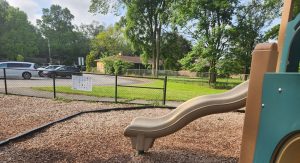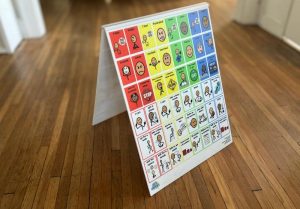

Summer not only is a time to travel, but a time when others may be traveling and staying with you! While these visits are important and eagerly anticipated, having Gramma and Papa or Auntie and Uncle staying in with you can really create situations where you and your child may not be at your best.
For some children, upsetting the routine at home can create a rather unsettling feeling that may last for the day, the week, or the month. Children may ‘express’ these feelings verbally, vocally or physically. Working through daily meltdowns is not a vacation for anyone – parent or visitor.
Proactively planning for visitors, no matter the length of the visit, should not only include cleaning and food prep, but working with your child AND your visitors so everyone can enjoy the time together.
Location….. If you child will be sacrificing their bedroom to Gramma and Papa or Auntie and Uncle you may want to :
- Weeks ahead of the visit warning your child verbally of the change
- Having a ‘pretend’ visitor (a nice use of that entirely too large of a stuffed animal living in your attic) stay in your child’s room; giving them the opportunity to sleep in the location they will be sleeping in when the ‘real’ visitor is in town.
- Have your child help in preparing their room for the visitor
- let them pick out the color sheets that will be on the bed
- Make a ‘game’ of hiding toys/games, etc.
Routine…. Without a doubt your child’s routine is going to be ‘off’ while there are visitors in your home. You may want to consider:
- Getting the daily routine down on paper (use pictures, words, etc)
- Reach out to your visitors and share the ‘typical’ daily routine and explain to them the importance of them understanding the routine, not that they will need to follow it minute to minute, but to realize how or why your child might be acting differently (ie: Typically after lunch, your child has rest time, however while visitors are in town, he/she may not get rest time until later in the day – this change MAY result in a meltdown.)
- Practice changing up the daily routine weeks prior to the visitors arriving.
- Give ample time for your child to process the ‘change in routine’ (some children will require a warning days prior to a major changes, others manage the change given a moments notice).
Have a Plan…. Life is life, so anticipate there will be a time and place while your visitors are in town when everything is going along well and BOOM your child unexpectedly melts down. You may want to consider:
- Having an “emergency melt-down kit” at the ready. A small bag that contains a favorite snack, fidget toys, favorite smells (ie: cinnamon candy, cotton ball with your perfume/colgan, etc), a ‘lovey’ or stuffed animal), etc.
- A playlist on a device (probably your phone) with favorite or soothing music
- Willingness to leave a location until your child is feeling better (ie: go to the restroom, go outside, take a walk away from the area)
- Talk less, act more – less is more in these instances. When your child is experiencing difficulty managing, having everyone talking to them could actually increase the confusion and escalate the melt-down. Stay calm, talk less, and move quickly to enact the plan may result in a shorter less dramatic event.
- Let EVERYONE know the plan. If you do not want or need help to execute the plan – LET EVERYONE KNOW. Your visitors, while meaning well, may try to help and in doing so create a larger issue.
Enjoy your time together and create memories that last a lifetime!
Yours in Speech,
Lakeshore Speech







